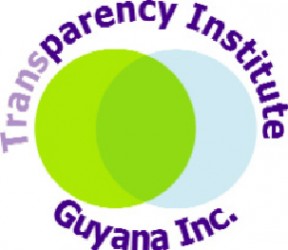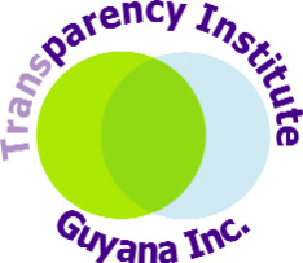Last Tuesday, we began a series of articles on the presentations of key speakers at the University College of the Cayman Islands Caribbean Anti-Corruption Conference that was held on 19-21 March 2014. The Chair of Transparency International, Dr. Huguette Labelle, was the keynote speaker at the opening ceremony, and we highlighted certain aspects of her presentation. Because Dr. Labelle’s presentation has so much relevance to Guyana, we continue today with her presentation in summarized form, as follows:
 Global tax evasion could be costing more than $3 trillion a year, according to research from Tax Justice Network, while as much as $32 trillion – twice the size of U.S. gross domestic product – may be hidden by individuals in tax havens. Today the corrupt, the criminal organizations, the drug cartels, and terror networks are able to move their resources and operations across borders almost with impunity, through high technology and complicit networks and because of weak regulatory regimes and poor enforcement. They also have the resources to push back on important legislation aimed at the public good.
Global tax evasion could be costing more than $3 trillion a year, according to research from Tax Justice Network, while as much as $32 trillion – twice the size of U.S. gross domestic product – may be hidden by individuals in tax havens. Today the corrupt, the criminal organizations, the drug cartels, and terror networks are able to move their resources and operations across borders almost with impunity, through high technology and complicit networks and because of weak regulatory regimes and poor enforcement. They also have the resources to push back on important legislation aimed at the public good.
It means that those who want to offer and accept bribes can now turn to facilitators: accountants, financial agents, and lawyers, many of them based in jurisdictions that will ask few questions about where the money came from. This is exacerbated in countries without the required sophisticated resources to do extensive offshore checks. This comes at a cost. In an interconnected world, gaps in our ability to sanction corruption anywhere will expose people everywhere to the cost of corruption. As long as this system continues, corruption will undermine all our efforts to transform our institutions and achieve more just societies.
In today’s globalised world, international criminal networks are perfectly poised to take advantage of weak states. The globalization of crime means that the scale of international illicit trade is enormous. The World Economic Forum estimates that the trade in arms, cigarettes and other goods is upwards of $650 billion. Such is the scale of illicit trade that it undermines national institutions.
Organised crime cartels are growing so powerful that they challenge official government institutions, create criminal patronage networks sustained by bribery and intimidation, institute parallel government structures or infiltrate state institutions. Access to this vast illicit wealth, specialist personnel and the lack of international frameworks to control them gives international criminals what the WEF Global Risk Report calls “state-like commercial and political power”.
When you have drug lords with more power than elected leaders, you can talk about state capture. Parliament and parliamentary committees may be influenced or even controlled by members who have conflicts of interest when it comes to policy decisions. Judges may rule in favour of the corrupt when disputes arise, irrespective of evidence and the law.
I believe that people in our countries do not wish to see their institutions both state and private being complicit to fraud and criminal activity. The country that we believe in should be open, free, safe and just with a decent quality of life for all and state institutions that are ethical, transparent and accountable to the citizens, with a clean private sector and educational institutions that prepare their graduates to have a strong moral compass in their professional and private life.
As a first step, it is absolutely vital to have strong and committed leadership at the top setting an example. Leaders who will create a culture of transparency and integrity within institutions with zero tolerance to corruption. They ensure that people throughout their institutions do what is right. They act by setting codes of ethics for all to follow, setting up policies, training systems, incentives and disincentives.
Efforts to tackle corruption have often failed because of corruption in the justice system. When there are factors that encourage the judiciary to take action contrary to the public interest, it can be very difficult to create a strong disincentive to corrupt behavior. Politicians, businessmen and criminals can be encouraged to break the law, safe in the knowledge that justice can be evaded. An independent, professional, impartial, transparent judiciary is at the heart of a system that protects the people. It includes a fair and open system for the appointment, promotion, and removal of judges. In an increasing number of jurisdictions there is an independent judicial council responsible for these processes. Increasingly, all those working in the justice system require a much higher degree of sophistication in dealing with economic crime to at least match the sophistication of criminal networks.
Having a code of conduct sends a message to voters and leaders alike where the line is drawn between acceptable and unethical behavior. Providing for a set of ethical standards increases public trust in and respect for the institution, as well as establishing rights and responsibilities for parliamentarians. Codes of conducts should include conflict of interest rules and oblige public disclosure of assets and those of immediate family. Avoiding conflict of interest remains essential and when placing one’s affairs in a special trust, we have to ensure that it is not overseen by the spouse or the children.
Financing of political parties remains a major issue today. Many countries have taken steps to regulate political party and campaign financing by introducing laws on disclosure of finances and requiring parties and candidates to report on the donations received, including the origin of the donation, the amount and party expenditure. External auditing and publication of results must be part of this transparent framework. A number of countries are now preventing businesses and organisations from contributing to political parties and candidates which means that only individuals can contribute. Some jurisdictions have also capped the amount that can be given. In some countries it is as low as $1,200 per individual contribution.
A starting point to promoting ethics and prevent corruption is to ensure a culture of transparency in the areas where it matters most: at the heart of government, in the institutions that defend the public, offer security, serve the public and manage. One way to achieve this is the disclosure of assets and interests – clear rules obliging public servants to disclose assets, financial interests, gifts or hospitality received to avoid conflicts of interest.
Rules for declaration of assets can be a disincentive to dubious activities, and help expose them. They can be made more effective through oversight by an independent body, and by being made easily available to the public. The G20 Summit has adopted common principles for asset disclosure by public officials, which said that systems should be fair, transparent, target those in senior or high-risk positions, be useful, enforceable and administered by well-resourced and independent officials.
-To be continued –

